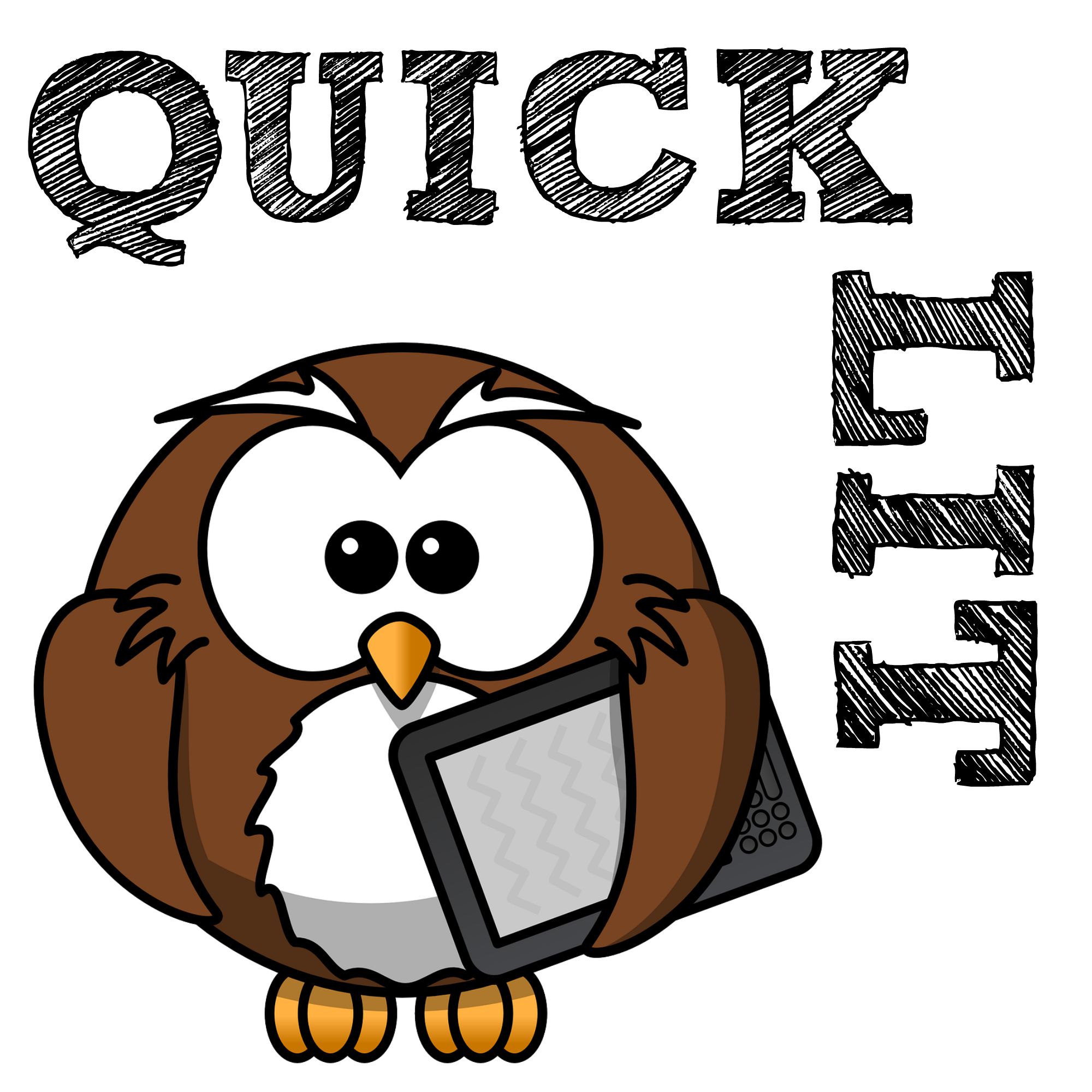I have a lot of words to say today about a lot of books, so let’s skip all introduction and get right to the reviews!
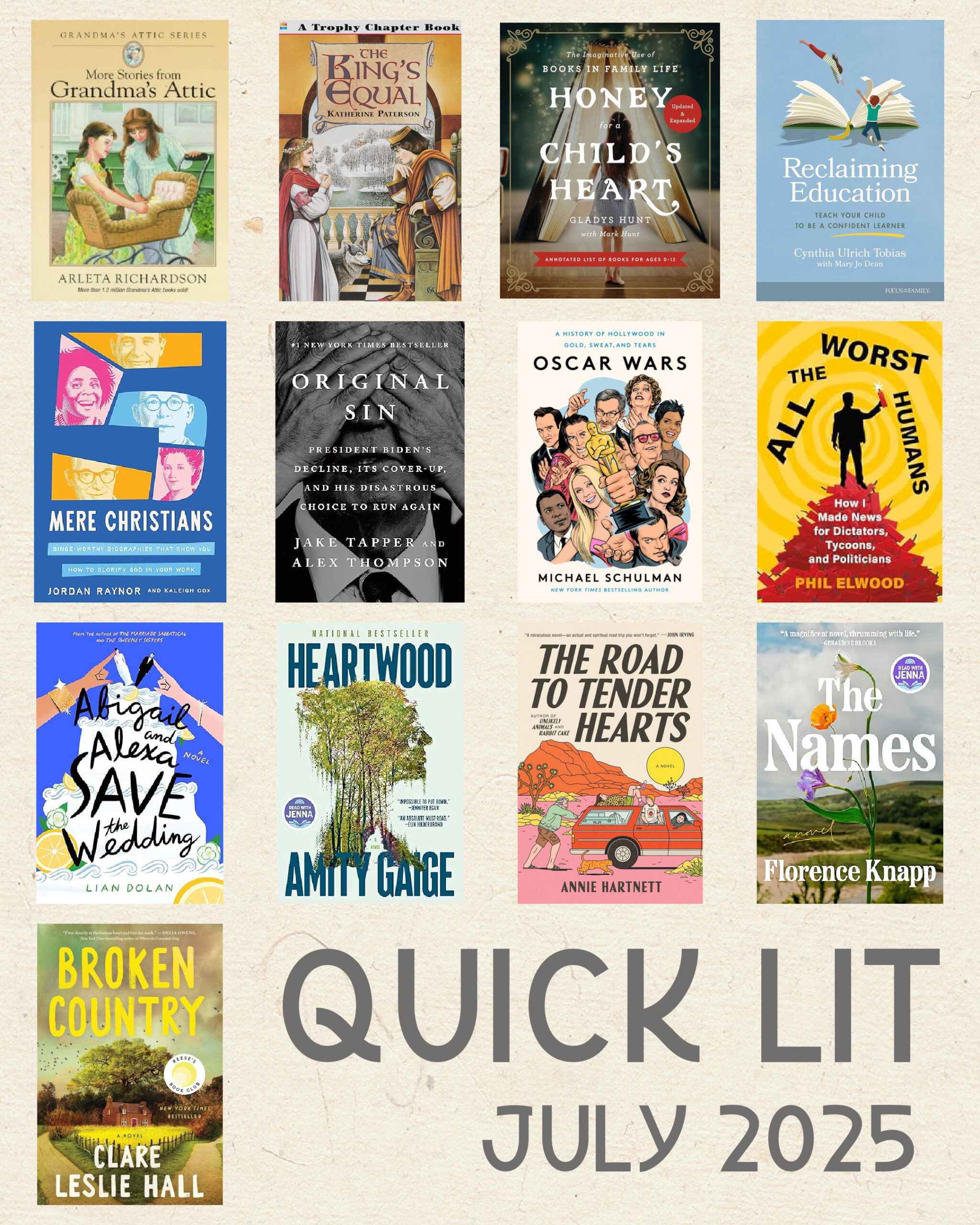
NONFICTION
All the Worst Humans: How I Made News for Dictators, Tycoons, and Politicians, by Phil Elwood: Phil Elwood spent nearly two decades spinning stories as a Washington PR operative. It’s a $129-billion industry, and with great money and power come a whole lot of bad actors. During his time in PR, Elwood worked on behalf of some of the worst of them, leading to his involvement with Qatar’s successful bid for the World Cup, the instigation of a trade war between Antigua and the US, and plenty of stories about hobnobbing with dictators in Las Vegas. With this book that’s described as a “bridge-burning memoir,” Elwood peels back the curtain on the PR world, exposing all of its darkest industry secrets, from policy-shaping story-spinning to manipulating journalists, underhanded media puppetry, and myriad other forms of deception designed to mislead or, if that’s not possible, simply stir up chaos.
The tone of this tell-all is fast-paced and humorous, belying the unsavory nature Elwood’s disclosures. I consider myself fairly media-savvy and am generally skeptical of broader narratives, but this book uncovered unimaginable depths of deception that has deepened my skepticism around politics, media, and the inner workings of the world in general. It’s a disheartening read, but also an important one.
I thought a lot of the recent Facebook exposé, Careless People (reviewed here), as I listened to this. Whereas that book felt like too many words, this one felt like too few; All the Worst Humans is indeed an eye-opening and even entertaining read, but it lacks a lot of the details I desired, with too many stories that are referenced but never fleshed out. The tone is also quite different from that of Careless People, as were my own impressions: I had an easier time accepting the author’s complicity here (Elwood’s bipolar diagnosis and eventual suicide attempt go a long way in making him a sympathetic narrator) . . . but given Elwood’s past successes with spinning stories to create palatable narratives, I don’t think I can be blamed for questioning the authenticity of his self disclosure or the sincerity of his contrition.
My Rating: 3.5 Stars // Book Format: Audiobook (The narration—though not by the author—is great, but it was harder to follow the fast pace and time hopping in this format.)
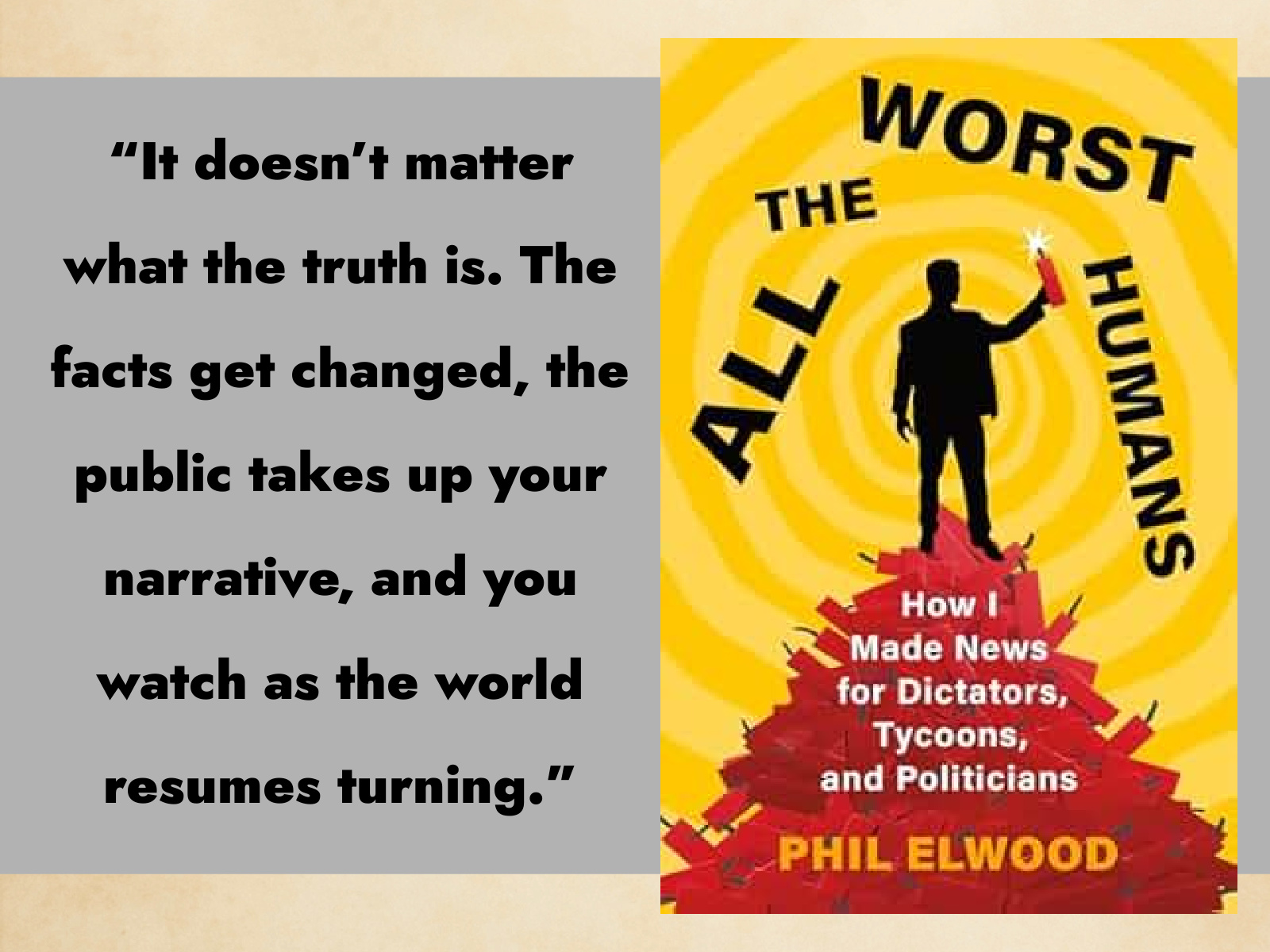
Honey for a Child’s Heart Updated and Expanded: The Imaginative Use of Books in Family Life, by Gladys M. Hunt: According to author Erich Fromm, all children need both milk and honey from their parents: milk symbolizes the care given to physical needs, while money represents “the sweetness of life, that special quality that makes life sing with enjoyment for all it holds.” Gladys Hunt builds upon this concept: “to give honey,” she writes, “one must love honey and have it to give. Good books are rich in honey.” These honey-soaked books are “a magic gateway into a wider world of wonder, beauty, delight, and adventure. Books are experiences that make us grow, that add something to our inner stature.” Sharing books with our children allows us to introduce to them the “wonder of words put together in such a way that they spin out pure joy and magic.”
In Honey for a Child’s Heart, Gladys Hunt (who wrote the first edition of this book in 1969) and her son Mark (coauthor of this fifth edition, published in 2021) remind parents of the power of the written word and the exceptional bonding that takes place between parents and children through the sharing of books. They explore the ways that books can open children’s imaginations and expand their world view while filling their young minds with goodness, beauty, and truth. They examine the attributes of a good book and guide parents in choosing the very sweetest honey to share with our children. Finally, they offer hundreds of book suggestions in numerous categories (from animal stories to fantasy, poetry to adventure) for children ages birth to teens.
I first became aware of this book back in my college days, when it was referenced in classes on children’s literature. I can see how Hunt’s work laid the groundwork for other books I’ve loved on children’s literature and reading aloud (most notably the books from Jim Trelease and Sarah Mackenzie). And while I’m sad that I didn’t read this one sooner, I was delighted to encounter it now when our family is firmly established in our read-aloud journey but still seeking extra inspiration and encouragement. This book was an invaluable reminder of the WHY behind our family’s already-flourishing reading life. I especially appreciated the chapter on reading Scripture with children and have begun incorporating some of the simple suggestions for expanding this Bible-reading time into deeper discipleship.
While I adored nearly everything about this book, I did have two small hangups. The first is with the nature of this fifth edition: I was certainly grateful for the updated guidance (that incorporates modern book formats such as audiobooks and ebooks and addresses contemporary concerns that would not have been relevant to Gladys Hunt’s first generation of readers), but I never knew whose voice I was hearing within the various anecdotes and wish that Mark Hunt had specified which words and stories were his mother’s and which were his own. I also didn’t care for the format of the final chapters’ recommended reading lists which, though excellent, are organized in a way that I found difficult to follow.
Despite these small drawbacks, I cannot say enough positive things about this book. I want to press it into the hands of every parent, and after borrowing it from the library for this first reading, I immediately purchased a copy to keep for further reference.
My Rating: 5 Stars // Book Format: Kindle

Five Mere Christians: Binge-Worthy Biographies That Show You How to Glorify God in Your Work, by Jordan Raynor: It’s easy to look at missionaries and pastors and recognize God’s calling on their lives. But what about the rest of us “mere Christians”? Is God able to use us in our everyday work and lives and, if so, how? This is the question Jordan Raynor brings to his exploration of five “mere Christians” who were not religious professionals but whose lives and work reflected Christ and had dramatic impact for God’s Kingdom.
This compilation of bite-sized biographies shares the stories of five individuals, a couple of whom are household names (Fred Rogers and C. S. Lewis) but a few that were new to me (civil rights activist Frannie Lou Hamer; Ole Kirk Christiansen, who was the founder of LEGO; and Hannah More, who fought to abolish slavery throughout the British Empire). We learn of key events in their spiritual formation as well as the ways that each Christian brought his or her faith into the workplace in ways that were just as effective (if not more so) than the work being done on the mission field and in the pulpit. Each biography ends with clear takeaways for modern believers as we seek to glorify God through our work, activism, play, and service.
I love the premise of this book that unites biographical study with application to Christian living, and I found these individuals intriguing and inspiring. Raynor gives us enough story to help us know these Christian heroes without getting bogged down by details, and his takeaways are spot on. Having read biographies on Lewis and Rogers in the past, these sections were less interesting to me, but all five individuals led lives worthy of emulating and deserving of being told.
My Rating: 4 Stars // Book Format: Audiobook
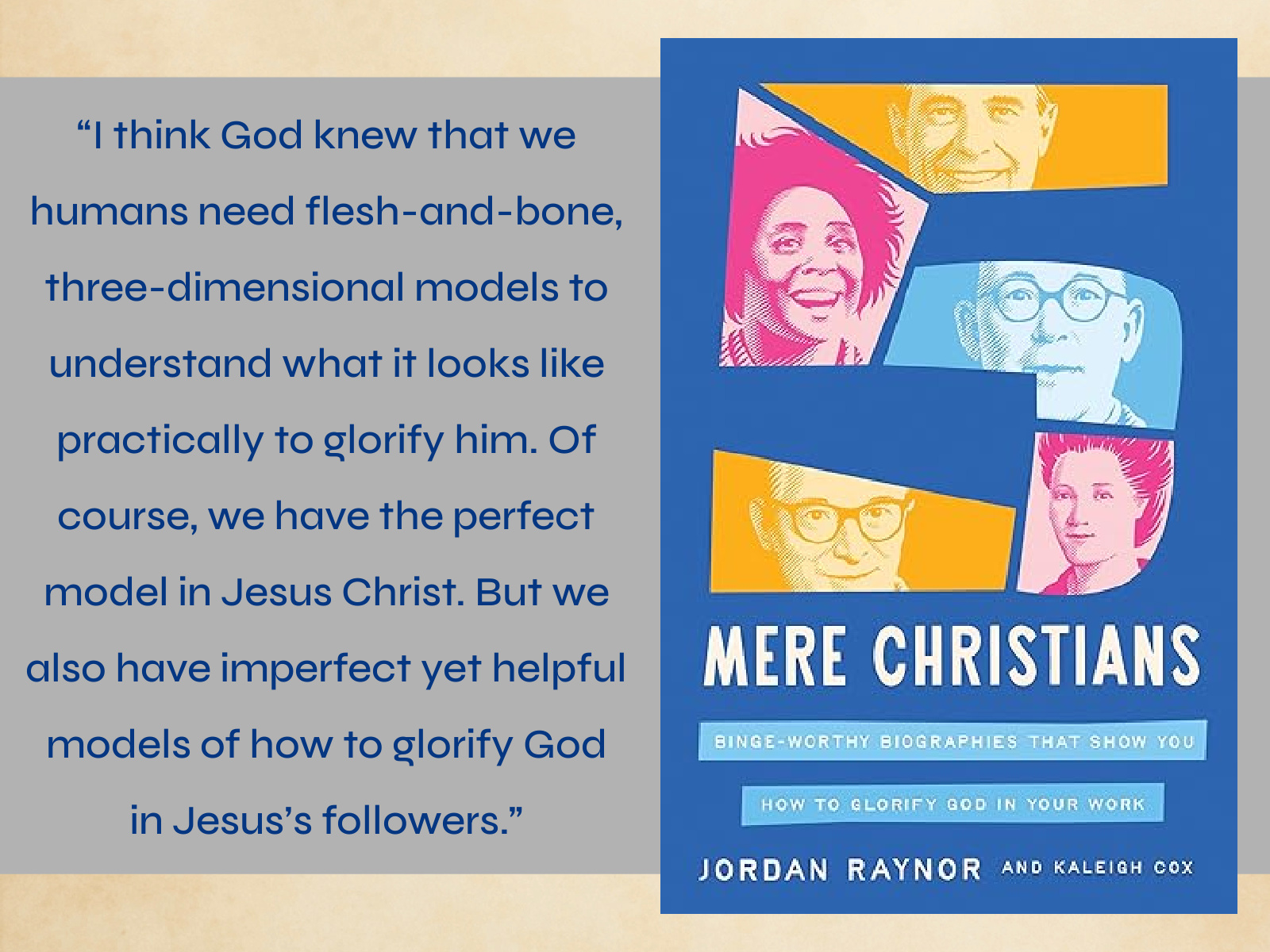
Oscar Wars: A History of Hollywood in Gold, Sweat, and Tears, by Michael Schulman: I may not be very well versed in Hollywood lore or all things pop culture, but even I know about the Academy Awards and have even watched them a time or two. I often find myself drawn to books that delve into subjects I know almost nothing about, which is why I pounced on the chance to listen to this exploration of Hollywood’s biggest awards show. In it, pop culture expert Michael Shulman looks back at nearly a century of the Academy Awards, from its beginnings as an industry banquet in 1929 to the massive production that it is today.
The book follows a periodic format, touching in on specific years to examine consequential (and often controversial) films and stars from select years and showing how awards given in those years reflected broader culture trends and were formative in the shifting nature of Hollywood and of the Academy Awards themselves. From the Hollywood blacklist of the 1950s to first x-rated Oscar winner in 1970 to the infamous Moonlight/La La Land mixup, we get a glimpse at some of Hollywood’s biggest stories and most salacious drama.
For the right audience, I can see that this would be an outstanding read. But having little knowledge of most of the movies and stars discussed in the book, I had a hard time getting into this one. The book is really long (21 hours on audio) with too many details about people I didn’t care much about and not enough cultural commentary on the issues that were interesting to me. I think I wanted more of an Oscars deep dive and instead it felt like an eclectic celebrity information dump. Parts were interesting, but I don’t know that I learned much about the Oscars.
My Rating: 3.5 Stars (Rounded to 3 Stars on Goodreads) // Book Format: Audiobook
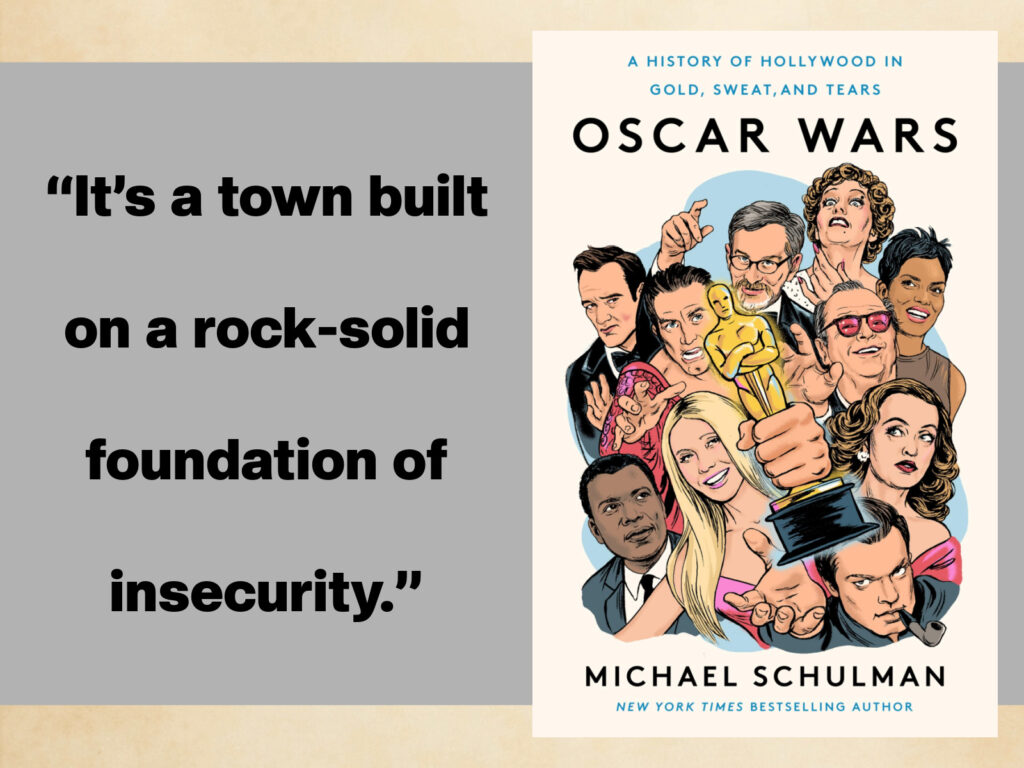
Original Sin: President Biden’s Decline, Its Cover-Up, and His Disastrous Choice to Run Again, by Jake Tapper and Alex Thompson: I’m a fairly heavy consumer of political news and commentary, so I was aware of President Biden’s gradual decline over the course of his presidency. But nothing could have prepared me for the scene we all witnessed on the night of his presidential debate with Donald Trump. This was not a well man, and seeing the president stumble through debate questions and totter off the stage, I feared not just for the prospects of a possible second term but also his current ability to hold one of the most powerful titles in the world. In Original Sin, journalists Jake Tapper (one of the moderators of that infamous debate) and Alex Thompson give the inside scoop on what was happening behind the scenes over the course of Biden’s presidency, his decision to run for reelection, the ultimate reversal of that decision, and the aftermath of his pulling out of the 2024 campaign for reelection. The book is thoroughly reported, and though most sources were off the record, we hear from White House staffers, members of the Cabinet, Congressional leaders, presidential advisers, and others close to the Biden family to gain a fuller picture of the realities that were kept from the public for far too long.
To quote the publisher’s blurb, “What you will learn [in this book] makes President Biden’s decision to run for reelection seem shockingly narcissistic, self-delusional, and reckless—a desperate bet that went bust—and part of a larger act of extended public deception that has few precedents. The story the authors tell raises fundamental issues of accountability and responsibility that will continue for decades. . . The decision to run again, the Original Sin of this president, led to a campaign of denial and gaslighting, leading directly to Donald Trump’s return to power and all that has happened as a consequence.” Though a lot of the information disclosed was not necessarily surprising (given my previous interest in this story), Original Sin reveals that the situation was even more dire than I’d feared.
Original Sin is likely to anger individuals on both sides of the aisle (for differing reasons, of course), but I found the reporting to be comprehensive and fact-based rather than inflammatory or excessive. And despite the sad nature of the subject matter, it makes for riveting reading, though it does prompt many questions regarding the trust we place in political institutions and in those who have been tasked with holding those institutions accountable (namely, mainstream media and others who participated in the broad cover-up of Biden’s deterioration).
This one suffers from unfortunate timing—in part because of the recent news of Biden’s cancer diagnosis, but also due to the fact that it was released long after the dust had settled around the 2024 election and Biden’s presidency. I’m grateful for the transparency but think it should have come sooner; now, it feels less like a constructive tell-all and more like a last ditch effort to resurrect mainstream media’s irrevocably tarnished reputation. In the book’s final pages, the authors make suggestions for how to avoid a future instance of an incapacitated president remaining in office. This is an important quandary that must be solved, but so does the issue of how to regain public trust in our government and in media, and those issues are tellingly ignored here.
My Rating: 3.5 Stars (Rounded to 4 Stars on Goodreads) // Book Format: Audiobook
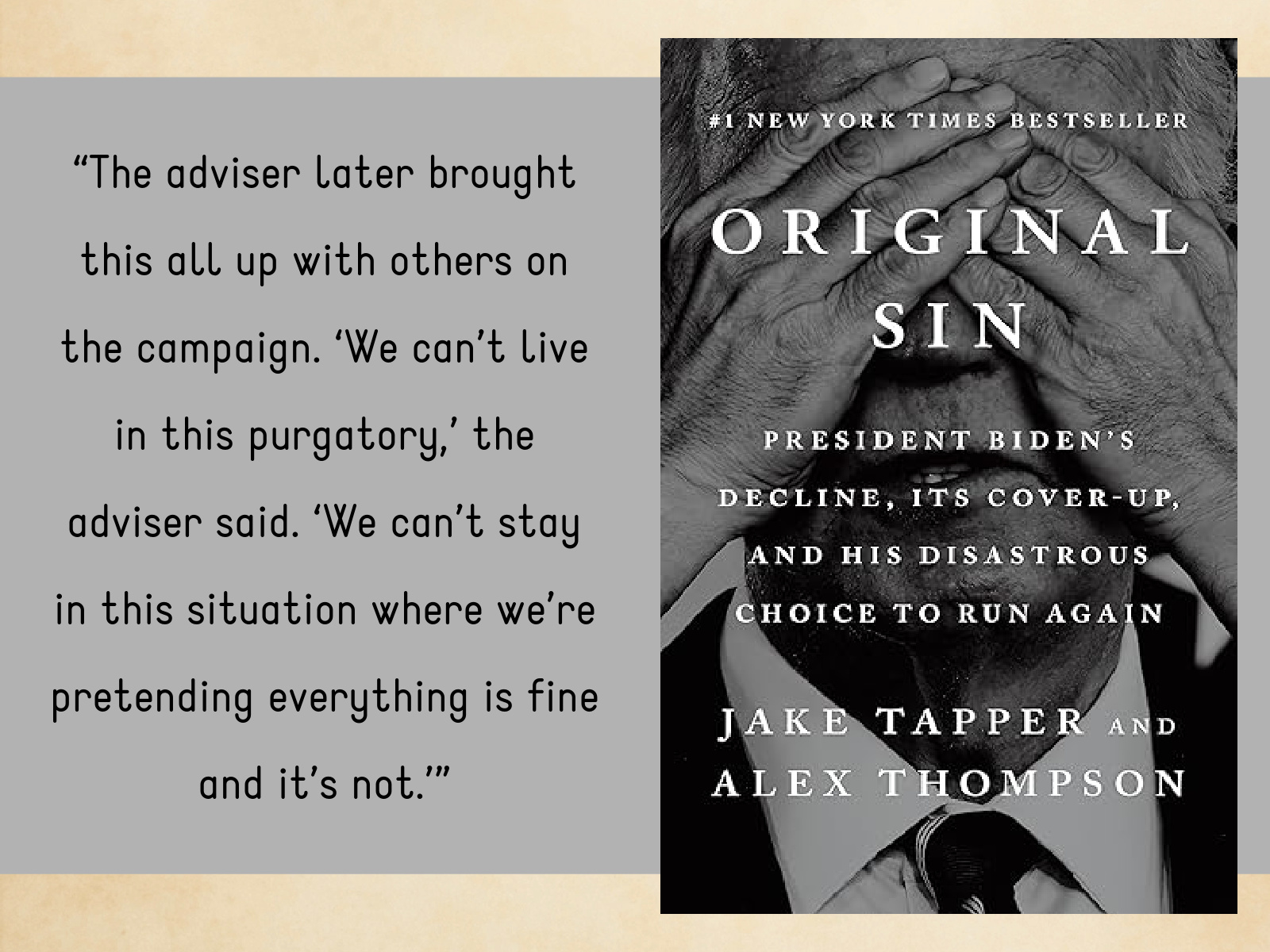
Reclaiming Education: Teach Your Child to Be a Confident Learner, by Cynthia Ulrich Tobias and Mary Joe Dean: I am a former public school teacher and myself the product of the public school system, but the facts are undeniable: public schools in the United States are failing America’s kids, both academically (many graduate without basic reading and math skills) and spiritually, with curriculum and prevailing ideologies that are overtly anti-Biblical. As Christian parents, it’s important for us to be intentional about how our children are educated; this could mean getting more involved in our kids’ schools (whether public or private) OR it might mean taking it upon ourselves to teach them at home. In this book, a learning-styles pro and a homeschool veteran team up to show parents how to work WITH our kids’ unique abilities and needs to ensure they get the best possible education. In simple, actionable chapters, the authors identify the various learning styles and types of learning environments, with tools for helping identify our kids’ needs and preferences and ideas for adopting these into our schooling. And while the authors present ideas for adapting these strategies to the classroom, they make a strong case for schooling at home, presenting valuable advice for those who might be considering homeschooling for their family (with many quotes from seasoned homeschoolers sharing their experiences and their “why”).
As a homeschool mom, I’m clearly biased on this issue. I don’t need any persuading that our own family’s schooling model is what is best for us, but I appreciated the statistics and reminders of WHY we’ve chosen this path. I found the specific tools extremely helpful (the quizzes helped me identify the learning styles of each of my three older kiddos [they each have a different one!] and gave me ideas for how to better meet their learning needs), and the reminders that learning is not one-size-fits-all (even within the same family) were invaluable.
My Rating: 4 Stars // Book Format: Print
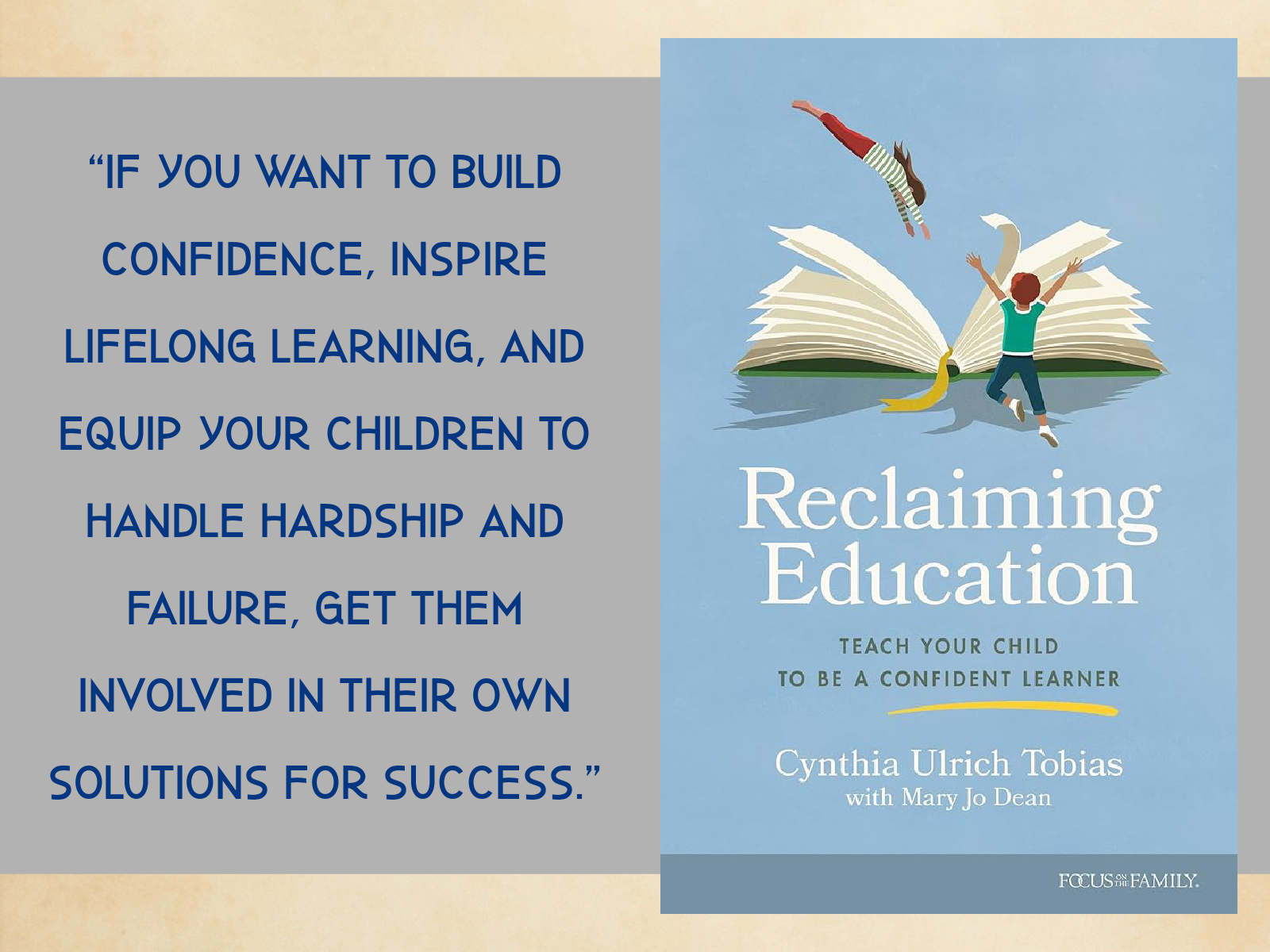
MIDDLE GRADE
The King’s Equal, by Katherine Paterson: On his deathbed, a king makes his arrogant young son his heir under one condition: Prince Raphael must find a princess who is equal in beauty, wisdom, and wealth who will reign the kingdom by his side. The prince’s councilors are initially unable to procure a woman who meet’s the prince’s high standards. But then Rosamund—a woman raised by a goatherd and discipled by a wolf—is brought before the king’s throne, and it appears he may finally have met a princess who is not just his match, but possibly his superior.
I learned of this story through Honey for a Child’s Heart, in which the author shares a heartwarming story centered around this book. I immediately purchased a copy for our family to read aloud, and we all loved this enchanting little fairy tale that is glowing with lovely themes of humility, generosity, and trust. The beautiful illustration are a wonderful addition to this memorable little book.
My Rating: 4.5 Stars (Rounded to 5 Stars on Goodreads) // Charleston’s Rating: 4.5 Stars // Sullivan’s Rating: 4.5 Stars // Kalinda’s Rating: 5 Stars // Book Format: Print
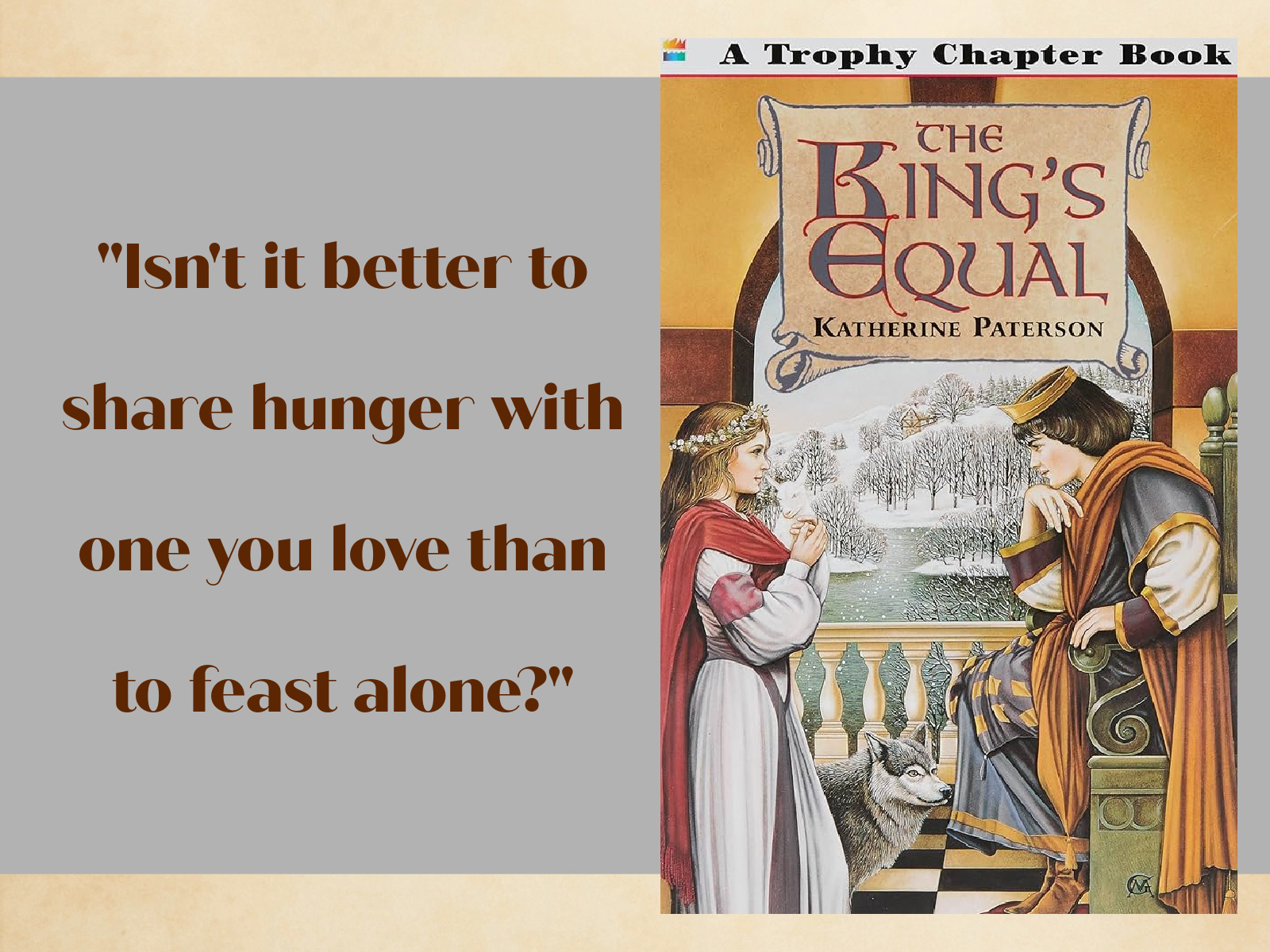
More Stories from Grandma’s Attic, by Arletta Richardson: Every child loves a good story, and Grandma tells the best—all true, all from her childhood on a Michigan farm in the 1890s, and all accompanied by valuable lessons that point her granddaughter (and her reading audience) back to God and the messages of His Word. From a pig masquerading as a newborn, to a doll that comes to life, the stories are laugh-out-loud funny and reminiscent of a time that was simpler but filled with adventure.
This series holds such a special place in my heart, as it was a favorite of my family’s when I was young. I’ve loved revisiting these classic, wholesome stories with my own kids. We’ve laughed at Grandma’s antics and reflected on the lessons she learned. One of my favorite read-alouds!
My Rating: 4.5 Stars (Rounded to 5 Stars on Goodreads) // Charleston’s Rating: 4.5 Stars // Sullivan’s Rating: 4.5 Stars // Kalinda’s Rating: 4.5 Stars // Book Format: Print
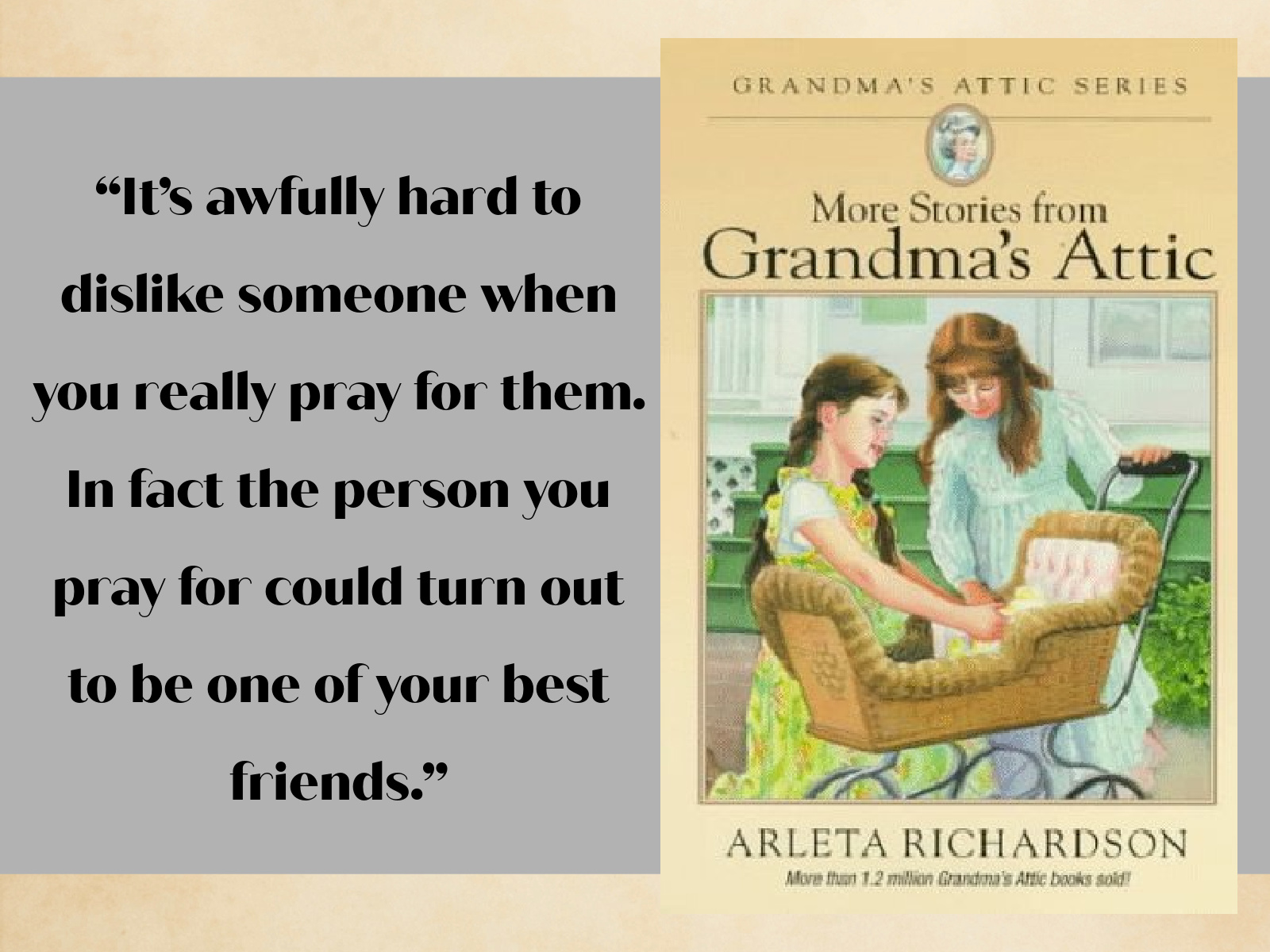
FICTION
Abigail and Alexa Save the Wedding, by Lian Dolan: Abigail is a mostly-retired East Coast socialite and daughter of the American Revolution living in Connecticut. Her family has fallen on difficult financial times, but Abigail is doing her best to keep up appearances—an ambition that is thrown off course by her thirty-year-old son Chase’s sudden grand political aspirations and his surprise engagement to Penelope. Abigail struggles to understand why Chase would want to represent the people of Queens, New York, or why he would fall for Penelope, a career-driven Californian girl who is nothing like the WASPy young women Abigail would have chosen for her son.
Penelope’s mother is Alexa, a Greek-born businesswoman living in Montecito, California—her home base between the exotic trips she takes as a travel agent to the elite. A single mother by choice, Alexa is slightly aghast at her daughter’s decision to find and marry a life partner.
Abigail and Alexa are as different as can be, but with their children’s engagement, they are united in their roles as MOG (Mother of the Groom) and MOB (Mother of the Bride) and must lay aside their differences to help make Chase and Penny’s wedding a reality. It’s not the partnership or the wedding either women would have chosen, but Abigail and Alexa are strong women who know how to work their behind-the-scenes magic, and they’re determined that their children’s wedding is nothing short of magical. And they’re not alone in the magic-making: joining them is a colorful assortment of coworkers (in the form of the charismatic Irish-born mayor of New York City who is Chase’s boss); extended family (among them Abigail’s tomboyish daughter, Sarah, and Penelope’s British godfather); and friends (most notably, the eccentric and excessively wealthy Merry Widows who make up Alexa’s closest circle). Toss in some family fiascos, a couple of surprise romances, an exciting caper, delectable wedding details (the industry has changed A LOT since my own 2008 wedding!), and the hilarious-yet-shrewd insights from wedding etiquette expert Auntie B, and this is absolutely a wedding story to remember.
What a delightful book this was (and not just because the eponymous wedding shares my own late-December wedding date!); a welcome breezy palate cleanser after several darker titles. I loved the humor and lighthearted tone, the subtle social commentary, the exploration of wedding and travel culture, the bicoastal setting, and the warmhearted approach to a scenario that is often fraught. I appreciated the celebrations of love and friendship and partnerships in their various forms, and I fell hard for each of our protagonists who are nuanced and intriguing. Each woman is impossible to categorize yet easy to imagine and, ultimately, to love, and I appreciated the evolving dynamic between the two; it would have been easy to villainize one or both of them, or to establish a rivalry between them, but instead Dolan gives these two sixty-something women a much kinder story that is hardly boring but refreshingly drama-free. Lian Dolan is one of the famed Satellite Sisters who built their brand on positive female relationship, and that theme shines here.
There were technical aspects to the book that didn’t work for me. There is more telling than showing, and the constant perspective-shift between our two protagonists grew confusing, as did the significant number of superfluous characters. (That said, though, the cameos of characters from Dolan’s other books were fun, as was the inclusion of a photographer named Collin Brookes, which is a portmanteau of Dolan’s sons’ names, and also the names of my niece and nephew!) Still, this was a wonderful read and something richer and more meaningful than the typical wedding novel, thanks to the focus on someone other than the bride and groom.
My Rating: 4.5 Stars (Rounded to 4 Stars on Goodreads) // Book Format: Kindle
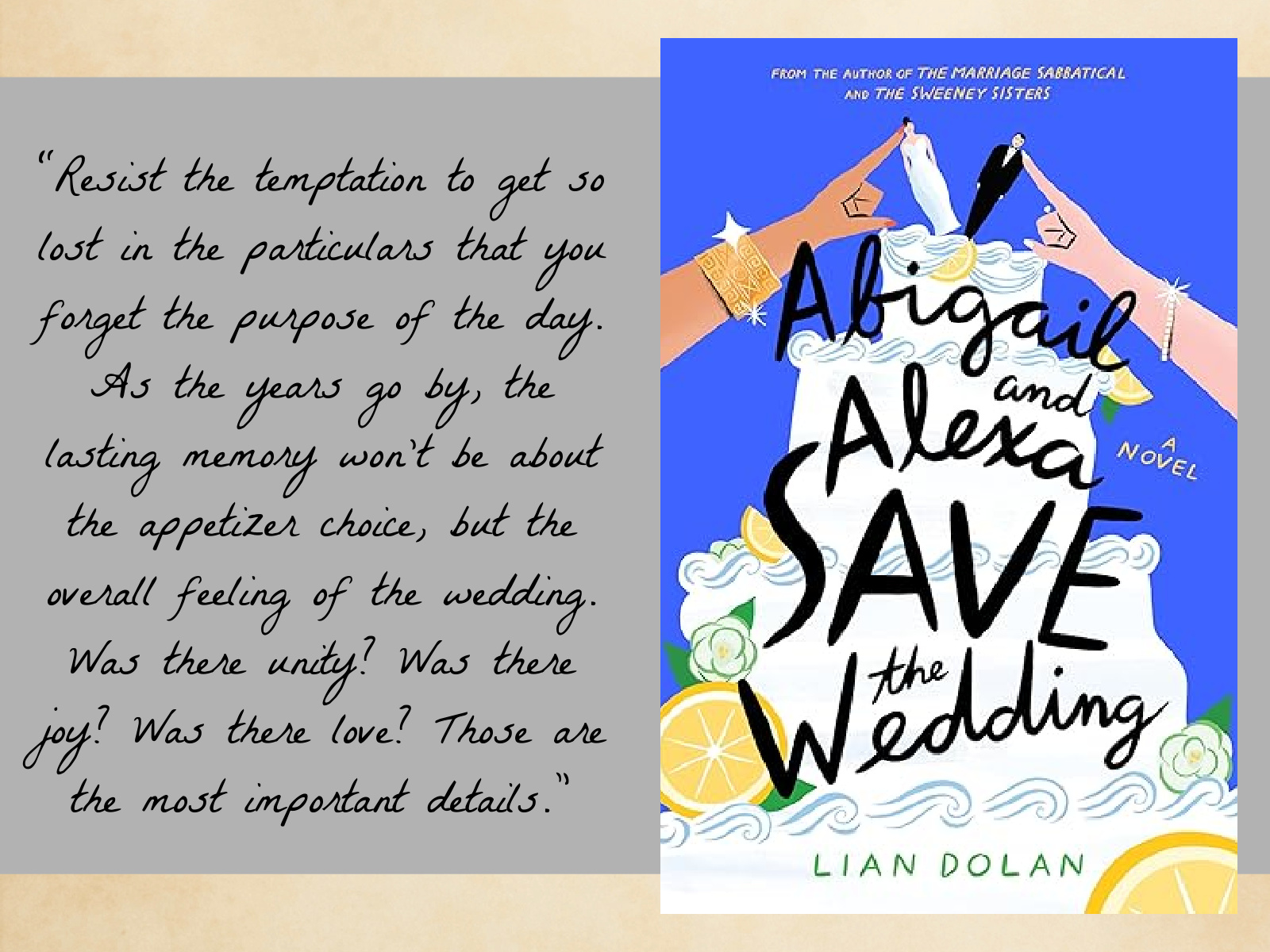
Heartwood, by Amity Gaige: Forty-two-year old Valerie Gillis is taking a much-needed sabbatical from her work as a nurse after surviving the most grueling period of the Covid pandemic. She’s spent this time hiking the Appalachian Trail and is just 200 miles shy of her final destination when she goes missing. Alone in the wilderness, she pours her thoughts into journals to her mother, reflecting in letters and poetry on the formative memories that led to her decision to embark on this perilous journey.
Heading the search for Valerie is Bev, the Maine State Game Warden who, like Val, has been doing a great deal of contemplation as she nears retirement and must make decisions about what her future may hold. Also involved in the search is Lena, a septuagenarian birdwatcher and forager; though Lena is confined to a wheelchair in her Connecticut nursing home, she believes she has a clue as to what might have happened to Valerie—and she’s certain that the disappearance wasn’t an accident.
Through these three women, along with transcripts from investigative interviews, we slowly piece together what happened to Valerie. This is a “missing persons” story, but not in the traditional sense: while observing the search for Valerie, we also engage in a more existential investigation of our protagonists’ inner selves, particularly their connections to their mothers and how those relationships have manifested in their unconventional life choices. This is a story of resilience and of physical and emotional survival, and while the tone is mysterious and sad, there are hope-filled resting spots along this literary trail.
I’ve seen this one recommended for fans of God of the Woods, and while Heartwood wasn’t the insta-favorite that God of the Woods was for me, it’s a decent comp thanks to its slow-burn suspense, multiple narrators, mysterious woodsy vibes, layered prose, and complex societal and familial themes. Great for fans of wilderness stories and emotionally resonant suspense, but enter knowing that this is far more “literary fiction” than “thriller,” despite misleading marketing that bills this as fast-paced.
My Rating: 4 Stars // Book Format: Kindle
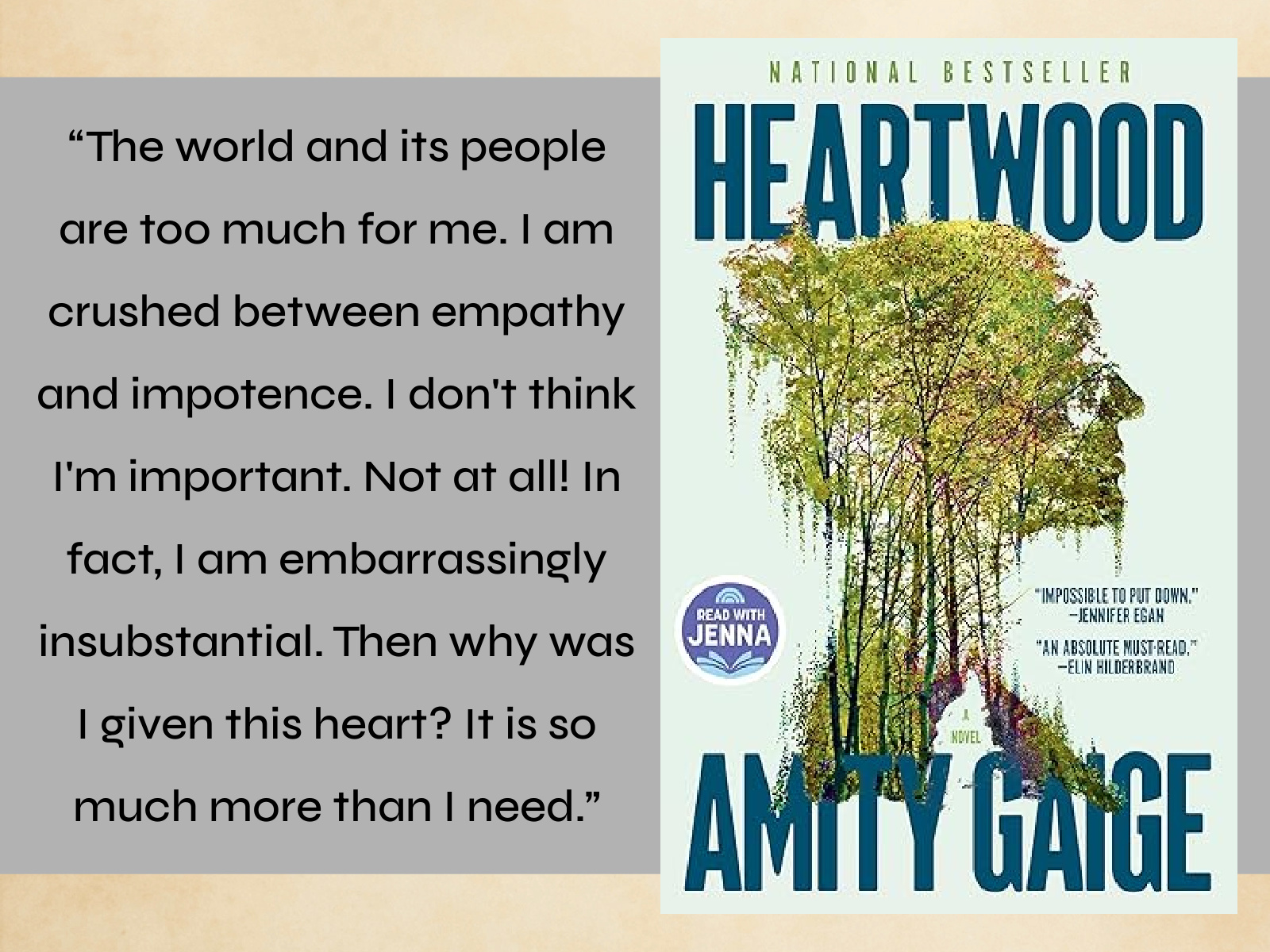
Broken Country, by Clare Leslie Hall: We begin in a courtroom, where a man has been charged with the murder of a local farmer. It’s unclear who has died or who is responsible for the death, but we know that the tragedy involves two young boys, a brokenhearted woman, and the three men who loved her.
From here we flash back to 1968 (one year before the trial), when Beth and her kindhearted farmer husband, Frank, have a loving marriage but are struggling to stay afloat after the the tragic death of their son Bobby. The underlying tensions in their relationship are forced to the surface when Beth’s first love, Gabriel, returns to their small British village following his recent divorce. Gabriel is accompanied by his son Leo, and soon Beth is pulled into Leo and Gabriel’s world in a way that will force her to make decisions about the life she has chosen with Frank and the future for everyone involved.
This book seems to be topping all of the Favorites lists this summer, and I was so swept up by the hype that in my excitement to read it, I didn’t clock that the story involved several of my least favorite story elements: a love triangle, infidelity, and death of a child. (These would have been apparent if I’d paid closer attention to the provided book summaries, so I take full responsibility for my misaligned expectations.) Further reading revealed the book to contain many more elements I dislike in a novel, including plenty of explicit sexuality, heavy reliance on the miscommunication trope, and a cheap reframing of a primary story line (in this case the court trial) to manipulatively introduce plot tension.
[WARNING: SPOILERS AHEAD! SKIP TO THE NEXT PARAGRAPH IF YOU WANT TO KEEP THIS REVIEW SPOILER-FREE] My biggest reason for disliking (hating?) this book is that I found the character of Beth loathsome. Her selfish manipulation and mistreatment of the men she claims to love is abhorrent, and I had a hard time buying into her love for either Gabriel OR Frank; it seems her connection to Gabriel has more to do with his status and with their sexual chemistry than with any genuine affection, and I sensed even less care for Frank (who is a hero in this story and the only adult character I liked in the book); to Beth, Frank is nothing more than a convenient savior and fallback, and SHE DOES NOT DESERVE HIM. (Can you tell I feel passionately about this?! Their storyline truly enraged me!) I don’t always need likable characters for a book to be a success, but there does need to be some believability or redemptive components or even just a standout story to make up for poor character behavior, and we have none of that here.
Needless to say, I actively disliked this book. And while my opinions are an outlier, I do see how it has such broad appeal, beyond the love triangle element (which I know is popular with most readers). We have a lovely historical British setting, and while with the prose is not particularly noteworthy, the story structure that alters between a few different time lines is quite well done. And then there’s the mystery: the court case at the novel’s center is propulsive, and after slogging through the book’s first half, I raced through the end to find out what happened (though, once finished, I realized that I had pieced together the somewhat-predictable outcome on my own). The book’s final selling point is the redemptive final pages: I did love the ending—not enough to redeem the book, but it’s responsible for my bumping this up half a star from what otherwise would have been a 2-star rating.
I’m sad that I didn’t enjoy this, but there are plenty of raving fans to counter my (scathing?) review, and if you enjoyed this, I would love to hear what made it a standout for you.
My Rating: 2.5 Stars (Rounded down to 2 Stars on Goodreads) // Book Format: Kindle
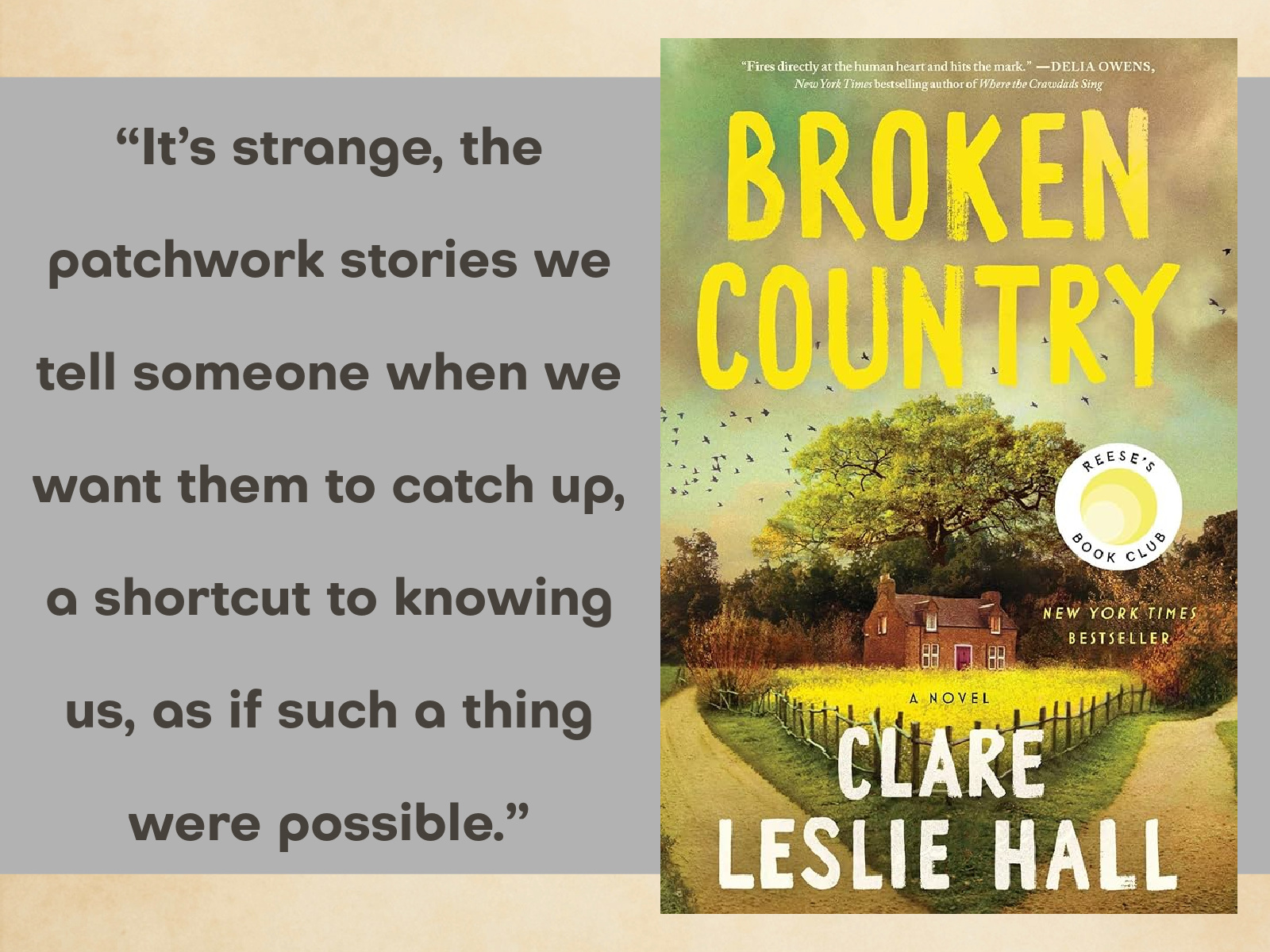
The Road to Tender Hearts, by Annie Hartnett: PJ Halliday is a lovable drunk whose sixty-three years have been riddled with tragedy, beginning with the death of his high school daughter fifteen years ago and culminating in his current situation in which he is the awkward third wheel in a codependent relationship with his ex-wife and her soon-to-be-fiancé. Even PJ’s one great moment of luck (winning $1.5 million in the lottery) has not served him well; the money didn’t last, and now he’s nearly broke and unsure how he will provide for Ollie and Luna, the ten-year-old relatives who have been unexpectedly placed in PJ’s care following their parents’ tragic deaths.
PJ wonders if his luck has turned when he reads the obituaries one morning and sees that the husband of his high school flame, Michelle, has died. Realizing Michelle is now single, PJ decides to set out for a trip across the country to the Tender Hearts Retirement Community in Arizona to win Michelle back. Ollie and Luna are along for the ride, and they’re reluctantly joined by PJ’s adult daughter, Sophie, as well as Pancakes, a former nursing home therapy cat who predicts death at every corner. What could go wrong? Well. . . everything, actually. But this disastrous Massachusetts-to-Arizona road trip might also be the second chance at love and belonging that each member of this accidental family is seeking.
Annie Hartnett first captured my heart with Unlikely Animals, and she has done it again here with another darkly comic novel whose absurdity and morbid themes are somehow made palatable—even enjoyable!—thanks to her voicey tone and wry humor. Hartnett is unlike any author I’ve read in her ability to make the most ridiculous storylines and horrific tragedies seem both believable and insanely funny (which is saying a lo,t since I don’t tend to go for dark humor). I loved every character here, but Pancakes totally steals the show; in fact, I don’t know that I’ve ever loved a fictional animal more, and getting into his head through the omniscient narrator was the cherry on top of an already delightful cake.
Sensitive readers should be aware that this book has a VERY high body count (Pancakes is, after all, a harbinger of death), with every type of intentional and accidental death imaginable depicted on (or just off) the page; that said, these deaths are couched in humor, and the death scenes are not graphic or gratuitous. In her not-to-be-missed Acknowledgements, Harnett writes about several disasters that marked her early years of motherhood and that became the inspiration for the book: “It felt like death was hunting us down. And it felt like I had to get between death and my child so it could take me first. . . So I decided I would take all those fears and anxieties and put them into a novel. I decided to take all my worries about not being a good enough parent or a generally capable enough person and put those worries in a book. And I decided I would make that novel as funny as I possibly could. That was my challenge to myself: to put everything bad I could think of in there and make it my funniest book yet. Humor is how I have always coped with anxiety and fear and terror and discomfort, so I wanted to make it all terrible but also very funny. Things are so horrendously bad, let’s laugh about it!” Knowing Harnett’s motivations made the tough scenes more palatable and helped me to appreciate the resilience of both the author and her protagonists despite seemingly insurmountable circumstances and fears.
This book will not be to everyone’s taste, but for fans of heartwarming found-family stories who are able to stomach a little bitter with the sweet, who love a good tall tale and a quirky road trip pit stop, and who appreciate some well-placed magical realism amid heaping helpings of zany dysfunction, you’ll want to hitch a ride on this totally wacky but impossibly endearing roadtrip.
My Rating: 5 Stars // Book Format: Kindle

The Names, by Florence Knapp: In 1987, a woman named Cora and her 9-year-old daughter, Maia, set off to register her newborn son’s birth. Cora’s controlling husband, Gordon, is a respected local doctor who assumes Cora will comply with his instructions that the baby be given his own name, but when asked what she will call the child, Cora realizes she has a choice: will she name this child Gordon after his cruel and demanding father? Will she name him Julian, her own choice for the child? Or will he be Bear, the name suggested by his older sister?
We check in on the family every seven years, following the three alternate versions this family’s story may take. Each path is shaped by the name he’s been given, with each alternative uniquely yet tragically shaped by domestic violence and the effects of generational abuse. And within each trajectory, we are invited to reckon with questions of agency, complicity, and the small and big ways that our lives (and our names) are shaped by seemingly inconsequential decisions.
This book is getting tons of recognition and is hugely popular with many of my most trusted book recommenders. And before reading, I assumed I would be joining the ranks of those singing this book’s praises. It’s my favorite genre (contemporary family saga spanning a longer time span and told through multiple perspectives) told in a structure I love (sliding doors) with one of my favorite subjects (baby names) at the book’s center. The book even has a few of those “extras” I love in a book, like the creative incorporation of artwork into the story (complete with an Author’s Note highlighting the real-life artists who found their way into the book).
Despite having so much working in its favor, this was not a book I enjoyed. The story is oppressively bleak and gratuitously tragic. I am not opposed to hard themes in books (my last two five-star novels were My Friends and The Bright Years, both of which were extremely sad); but I need some redemptive moments, and those are rare in The Names. Here, the darkness is not just unending but also unearned (and sometimes nonsensical), leaving me feeling repulsed and angry rather than sad. This reaction was compounded by a lack of connection to the characters, who are so different in each version of events that I never truly knew or understood them. There are many supporting characters who show up in interesting ways in each story line and who I genuinely came to care about, but the primary cast remained opaque and unsympathetic.
This book—especially the ending—is memorable and HIGHLY discussable. I’m glad I pushed through the difficult portions, if only so that I can understand the hype, but it is not a book I would be quick to recommend to others.
My Rating: 3.5 Stars (Rounded to 3 Stars on Goodreads) // Book Format: Kindle
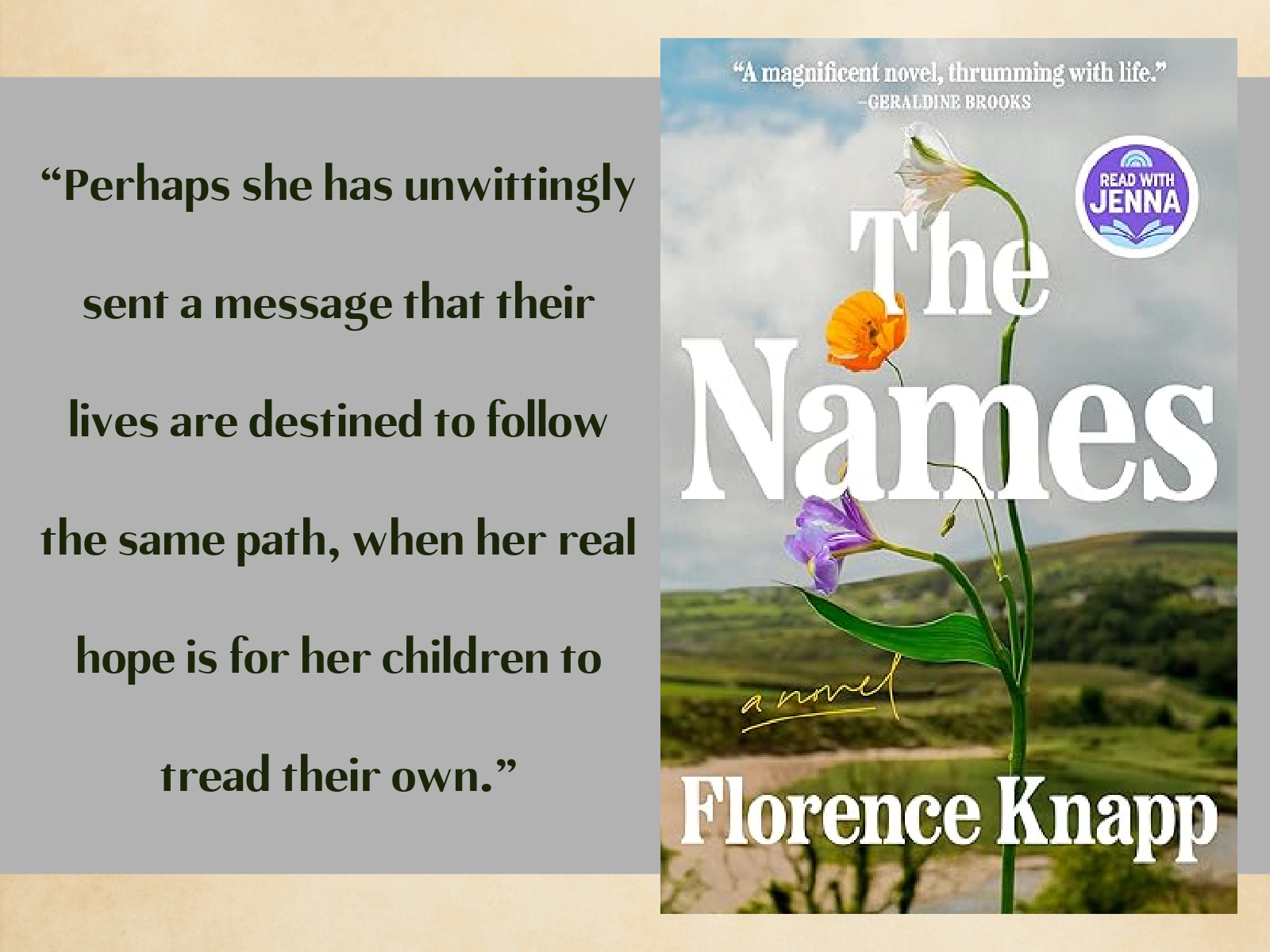
I’d love to hear your thoughts on any of these titles: have you read them? What did you think? And what else have you been reading lately?
And if you are looking for some GREAT book recommendations, please visit my friend Carol’s blog where today I am one of twenty bloggers sharing our top book recommendations for the summer! It is an awesome list that includes a handful of my personal favorite books for the year as well as many others I’m eager to read. Head there to find out which book I suggested and let me know which ONE book you would contribute to the list!
